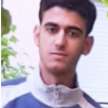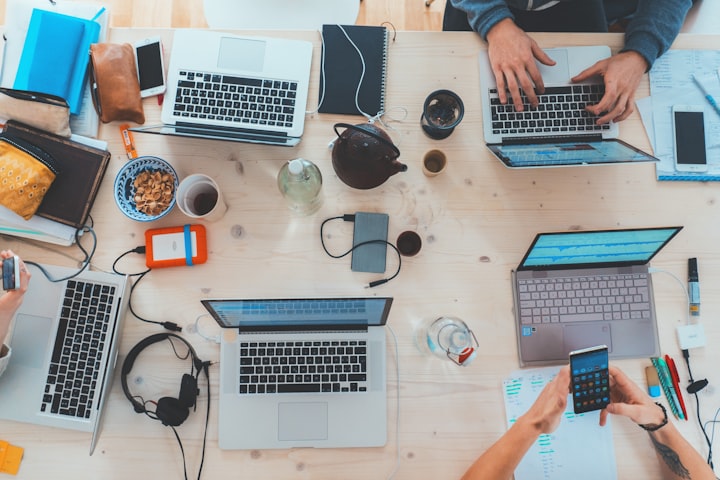
You need to understand how the brain works in order to make it work for yourself.
For anyone interested in pushing his or her limits further, I will highly advise studying as much as you can the brain, the neurological pathways, and the chemicals that are used and released when we do certain actions. As a medical student, I’ve been lucky to be able to study the brain and human psychology comprehensively and thoroughly, but nowadays anyone with an Internet connection can. I will try my best to teach as much as I can what I’ve learned and what I’m learning about the brain and how to make it work it for you, in order to be more productive, focused and happier.
I will keep this article short so that you can get all the information in a few minutes.
- Develop a sleep habit. Go to sleep and wake up at the same time, every day. I’m quite of a night owl so I go to sleep around 1:00 and wake up at 9:00.
- Drink two glasses (16 ounces) of water as the first thing you do in the morning. This is a quick way to rehydrate your body after all those hours of sleep with no water. And since the brain is composed of almost 73% of water, it is really important to rehydrate to be able to think clearly.
- Exercise for five to seven minutes. This is not a proper workout but you should get your heart rate in the range of 110 to 140. In this way, all the cells of your body (including your neurons) will get a proper blood flow that carries oxygen and nutrients with it.
- Meditate for five to ten minutes. It may seem stupid and a waste of time in the beginning but it is crucial to learn to stay focused. I’ve been doing it for the past year and it has proven great in so many areas. I’ve seen that since I started meditating I’m not just more productive but also overall happier and I’m able to enjoy more the present moment without stressing too much about the future. It is a great way to decrease your anxiety.
- For breakfast try to include eggs, blueberries, and avocado in your diet. They help the process of neurogenesis (creation of new neurons). Other foods that help neurogenesis are walnuts, coconut oil, salmon, leafy vegetables, and foods that contain flavonoids (for example dark chocolate). Do not underestimate your diet. We have a sort of “brain in our gut” called the enteric nervous system (ENS) with hundreds of million neurons. It has been shown that it affects our mood, health, and even the way our neurological pathways work, which basically means that it has a direct role in how we think.
- Get some wait time between meals (four/five hours). Fasting helps in neurogenesis.
- Plan your day the night before. In this way, you will always wake up knowing what you have to do. And remember even the small decisions drain your energy pool. For example, even decisions as simple as what you will eat or wear drain your energy. So always plan your day the night before. Just look at Mark Zuckerberg who wears the same type of T-shirt every day so not to waste energy on choosing what to wear.
- Divide your studying period in 30 minutes slot and afterward take a break of exactly 5 minutes where you walk a little bit and get some fresh air. Use a timer to help you stay disciplined. Our bodies were not created to stay on a chair for hours. Our brain is more active when our body is moving. And dividing your study period in small chunks that are punctuated by short periods of break help the brain in the process of retention and memorization.
- Eat fewer carbohydrates at lunch. They will make you sleepy in the afternoon. After lunch, go for a five-minute walk and expose yourself to daylight. Keep yourself hydrated throughout the day. This truly has saved so many of my afternoons that would otherwise have been wasted with me (half) asleep on my anatomy book.
- Learn to prioritize. Do the most difficult and important tasks first. First, prepare your hardest exam.
- Don’t take notes. Don’t highlight. Don’t make graphs or try to summarize the chapters you have to study. At least don’t do it with the textbook under your eyes. You can read and re-read a chapter for a thousand times and you think you have learned but as soon as you close your textbook or put away your notes you have a total blackout. That is because you have learned to recognize where the stuff is and you have learned how to find it quickly with a source under your eyes. But to remember it you have to do ACTIVE RECALL.
- ACTIVE RECALL. I’ve given it a point of its own because if you get one thing from this article I hope it is this: practice active recall. What does it mean? It means you have to close your textbook, put away your notes, your flashcard, or whatever you might have under your eyes, and try to extract the information out of your memory. I know it is hard and it is frustrating, but learning is not supposed to be easy. For this, I will advise you to write questions while you are studying a certain chapter. Then you close the book, take your paper filled only with questions, and try to give them the best answer you can. When you see you don’t remember something you will highlight the question, re-read that part of the chapter and then try again to extract information from your memory. I assure you that it is frustrating and damn hard and it won’t get better with time but the results are simply amazing. Try it for yourself and stick with it for a few months. You will realize that all that hard work is completely worth it.
- Mens sana in corpore sano. Exercise regularly. At least three times a week for a minimum of forty minutes each time. Running, for example, is a great way to keep yourself fit and it also helps in the process of neurogenesis. If you find running boring (like I do), try to incorporate it in something more fun like playing soccer.
- From time to time, try to write with your non-dominant hand, even for just a few minutes a day. This helps in making new synapses. Remember that your intelligence is proportional to the number of synapses. Other ways to create more synapses are by learning languages, solving problems, or adapting to new situations (for example by traveling in a place with a different culture than yours).
- Wherever you are, be there. Stay focused. It is useless to sit on a chair for hours if your mind keeps wandering. If you have no attention, you will have no retention. Meditation will definitely help you here.
- Bring information to life. Try to see if you have truly understood the concepts and try to repeat them in a sequence. Where possible, try to make a mental film of the concepts you want to memorize. Our brains tend to remember better images that are moving over those who stay still.
- Self-discipline. Develop these habits and stay consistent with them. You can go to the gym for a few days and train for sixteen hours but most probably you won’t see any results. It is much better to train for only a few hours but be consistent with your training over time. The same applies to the process of learning. You memorize something by repeating it over a long period of time.
- “Repetita giova”. Repeat what you have learned and you will not forget it. As Socrates said, “our learning is nothing else than recollection”. Maybe do this with a classmate of yours so it won’t be boring and this will also help both of you to stay disciplined.
- Create a routine before going to bed. Don’t expose yourself to blue light-emitting screens for an hour before going to sleep. Don’t study and don’t read in your bed. Your bed must only be the place where you sleep. Dim the light, cool your room and meditate for ten minutes before sleeping. NEVER compromise on your sleep!. Sleep is fundamental to remember all the information you have learned, create synapses, be more focused and active.
- Take action. You can know all the secrets and the tips in this world but until you don’t put in the work, you will never see the results. Life only rewards action.
Good luck and tons of best wishes!
About the Creator
Hamza Ali
21 years old student | Wannabe writer| Italy| Polyglot|Bookworm |Broke but hope not for long;)






Comments
There are no comments for this story
Be the first to respond and start the conversation.